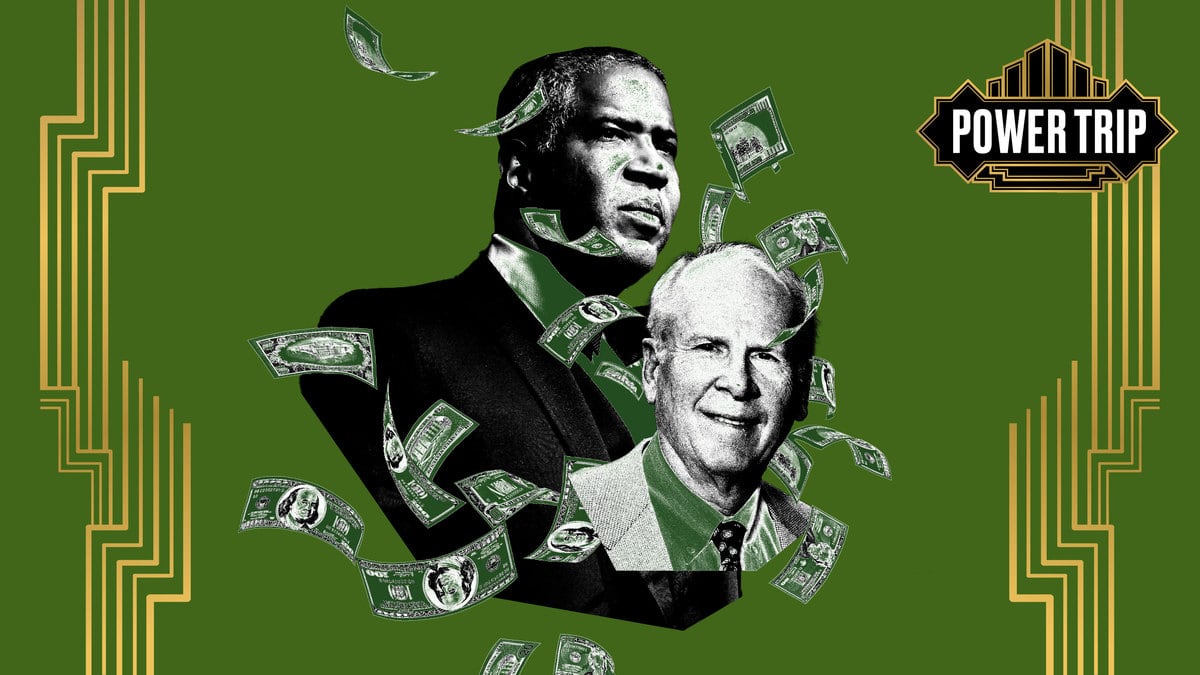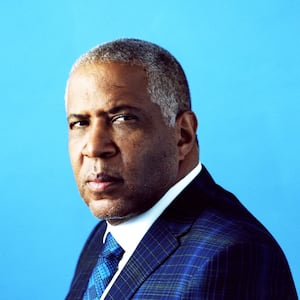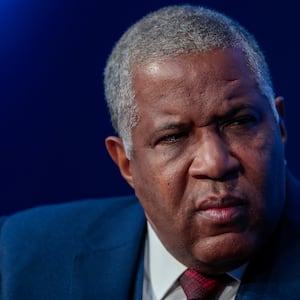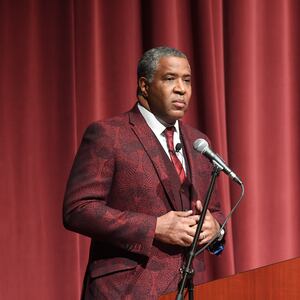When the billionaire Robert Brockman died on Aug. 5, less than three months after a judge ruled him competent to stand trial in the largest tax fraud case in U.S. history, the prospect of explosive public testimony evaporated, too.
That newfound sense of quiet is likely welcome news to another billionaire, Robert Smith, who signed a non-prosecution agreement with the feds in 2020 and agreed to cooperate against Brockman and other possible suspects. The Brockman trial would have been the most high-profile element of that deal—and another public relations fiasco for Smith, who has worked to brand himself as a prominent philanthropist.
“Smith got a great deal,” said Neama Rahmani, a former federal prosecutor who has since cofounded a private firm, West Coast Trial Lawyers. “He's pretty well situated right now, because now he gets the benefit of the agreement without actually having to testify.”
ADVERTISEMENT
To Rahmani, Smith’s deal was surprising to begin with. The allegations against him were serious: According to a Department of Justice press release, the private equity tycoon “willfully did not report to the IRS over $200 million of partnership income,” and he used millions of dollars in unreported funds to scoop up properties across the globe.
Non-prosecution deals are “very rare” at the Department of Justice, Rahmani said. “I put more than 1,000 people in federal prison and never gave one non-prosecution agreement.”
One reason for that is prosecutors generally wait until after an individual has fully cooperated to give them a reduced punishment, Rahmani said. A pre-emptive deal is often “terrible lawyering,” he added, because it creates an easy target for defense lawyers in court.
“If Robert Smith is actually going to go through and testify against…Brockman at trial, he’s going to get destroyed on cross examination, because the defense lawyers will say, ‘The only reason you're saying all this is because the government gave you this cooperation agreement, so you have every incentive to lie to save yourself,’” he said.
Rahmani emphasized that he wasn’t involved in Smith’s case and therefore couldn’t speak to the government’s rationale in offering such seemingly favorable terms, though he said that Smith clearly had the deep pockets to hire prominent lawyers.
“The hope is that these types of decisions are made based on the facts and the law, and not based on, you know, relationships or finances or other considerations,” he said, “but the money and lawyers and those types of relationships clearly matter.”
As Bloomberg previously reported, Smith may have also discussed working with the government on a “national security matter” prior to striking a deal, though the details of that situation remain unknown.
Representatives for Smith declined to comment. The Department of Justice did not respond to a request for comment.
Even following Brockman’s death, inquiries against him won’t fully cease. The criminal case will be dismissed, though that hasn’t happened because his death certificate is not yet available, according to a person familiar with the matter.
A civil investigation will proceed against Brockman’s estate, said David Slenn, a partner at Akerman who is writing a book about how the rich avoid creditors and taxes.
In the weeks since Brockman’s death, both the government and his attorneys have filed briefs in U.S. District Court in Houston, in which they have mainly squabbled about a so-called “jeopardy assessment” levied against him—wherein the IRS seized contested assets, believing they might be placed out of its reach.
Smith also can’t fully put his tax issues behind him yet. He may be ordered to testify in the upcoming criminal trial against his former attorney Carlos Kepke. According to allegations outlined by federal prosecutors, Kepke helped Smith “create and maintain a structure of offshore entities and foreign bank accounts that were used to conceal from the IRS approximately $225 million of capital gains income” between 1999 and 2014.
A 2021 press release from the Department of Justice said that Smith had paid Kepke more than $1 million since 2007, including “an annual payment for Kepke to purge or ‘securitize’ his records related to Smith,” an LLC based in Nevis, and a trust based in Belize. Kepke, 83, has pleaded not guilty.
When that trial ends, Smith may finally be able to put his public tax saga to rest. Perhaps then, the headlines will again focus on his highly publicized charitable gifts, including a 2019 pledge to pay off student loans for the entire Morehouse College graduating class and a $20 million gift to the National Museum of African American History and Culture.
In some corners of high society, Smith’s name is still hard to miss. He chairs the Carnegie Hall board of trustees, sits on the Robert F. Kennedy Human Rights board, and is a member of the Cornell Tech Council.
His rebound seems to be working. Last spring, as one example, a new mobile cancer-screening unit from Mount Sinai hospital hit the streets of New York emblazoned with Smith’s name.
In response to questions from The Daily Beast at the time, a spokesperson for Sinai defended the choice to give Smith naming rights, offering a full-throated endorsement of the billionaire his own PR team couldn’t have written better.
“We are very grateful for Robert Smith’s support and for his partnership,” she said. “Robert Smith is an incredible leader and philanthropist.”









